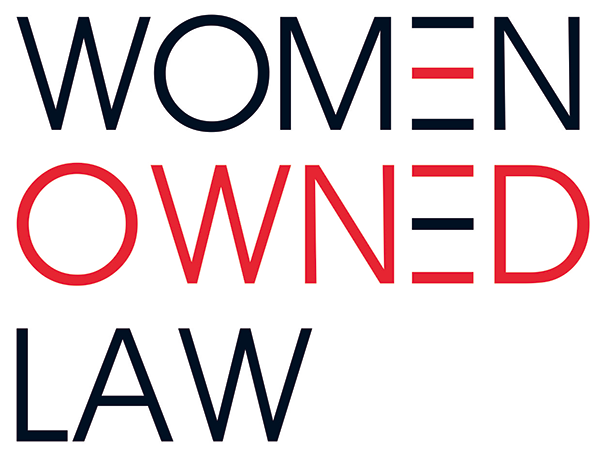How can law firms best help women attorneys develop their skills and practices, and also retain these lawyers? For more than 30 years, women have represented at least 50% of the graduating class from law schools in the United States. Yet, women currently make up only 38% of lawyers, about 22% of equity partners in Am Law 100 law firms, and 28% of general counsel in Fortune 500 companies, according to a survey by the ABA in 2022. Keeping women in the legal profession was one of the reasons Nukk-Freeman & Cerra (NFC) was founded in 2006. We were determined to find a better way to operate a law firm that allowed women to continue a sophisticated practice in employment law, and also be mothers, caretakers and community leaders.
One of the gaps we saw in big law was the failure to provide meaningful opportunities for professional development of women, especially those attorneys who were, intentionally or unintentionally, placed on the mommy track. Even women without children faced obstacles, often being stereotyped as lacking leadership capabilities or subject to microaggressions. Reliance on informal and unstructured mentors reeks of the old boy’s club and tends to reward those who are naturally assertive. These practices leave a lot of very smart women out of the mix. We recognized that a more structured focus on developing and promoting our attorneys was necessary to ensure that all our attorneys, including women and minorities, receive the same opportunities. It also makes good business sense, given the high cost of hiring and training attorneys. Finally, it responds to the interest of clients who seek diversity among their service providers.
From the outset, all non-partner attorneys are assigned a mentor and a buddy. The mentor program sets forth specific requirements, including meeting with the mentee at least eight times a year and a check list of topics that mentors discuss during these meetings. This includes, for example, performance strengths and development needs, career goals, promotion criteria, cultural feedback, and guidance on business development, professional development and billable hours. Mentors are rotated every year or two, giving attorneys an opportunity to be mentored by multiple partners. Our mentorship program also works in reverse. “Mentoring should be a fulfilling relationship between somebody with more experience and somebody with less, with the goal of helping both individuals become elevated versions of themselves,” according to Janice Omadeke, founder of The Mentor Method.
In addition, we have a buddy system for newly hired attorneys. It is designed to pair a new attorney to the Firm with an existing attorney at the same level. Attorneys volunteer to be buddies, and serve as a sounding board for the new attorney; someone to whom the new attorney can ask questions about processes and procedures and Firm culture. The buddy also makes sure the new attorney gets to know others at the Firm, and takes the new attorney to lunch and coffee walks with others. Attorneys who volunteer to be buddies are rewarded through the Firm’s annual discretionary bonus program.
NFC also supports the professional development of our attorneys. NFC University provides on-site training; most programs are delivered by partners and counsel at the Firm, and outside experts are sometimes included for a diversity of perspective. Trainings cover technical skills – such as taking depositions, representing clients at mediation, writing mediation statements versus case assessments – as well as soft skills – such as lawyers as leaders, communicating effective feedback, public speaking, and being an upstander in the face of unconscious bias. The Firm also identifies outside trainings, including CLE courses and conferences, for attorneys to attend and then report back to the group on their learnings. The Firm includes additional compensation in all attorneys’ salaries for an anticipated number of non-billable hours to compensate for these in-house and outside trainings. Attorneys who conduct the NFC University courses are also rewarded through the annual discretionary bonus program.
NFC maintains a feedback-driven culture. It is one of the Firm’s core values, and is discussed with prospective attorneys in interviews, incorporated in the onboarding process, and reiterated regularly throughout the year. The Firm strongly believes that giving attorneys, and professional staff, immediate feedback is the true mark of caring. At NFC, an attorney should never hear feedback at a formal year-end performance review that they have not previously received. Attorneys are trained on how to effectively deliver feedback, and how to receive it. Our mantra is feedback is fuel that propels us to continued improvement and success.
All of these initiatives are designed to prepare NFC’s attorneys to provide the best representation for our clients, as well as create an environment where the attorneys want to stay for their entire career. As an entrepreneurial law firm, we are always looking for ways to innovate and improve. As such, we are not afraid to try new things, stop doing things that aren’t working, and tweak those that are. With this mindset, we believe we are doing our part to keep women and minorities in the legal profession.
Kerrie R. Heslin is a Partner at Nukk-Freeman & Cerra, PC, where she focuses her practice on litigation of employment matters on behalf of employers. She also serves on the Board of Directors for the Women Presidents Organization and the National Association of Women and Minority Owned Law Firms. She can be reached at [email protected] or 973-507-7620.

